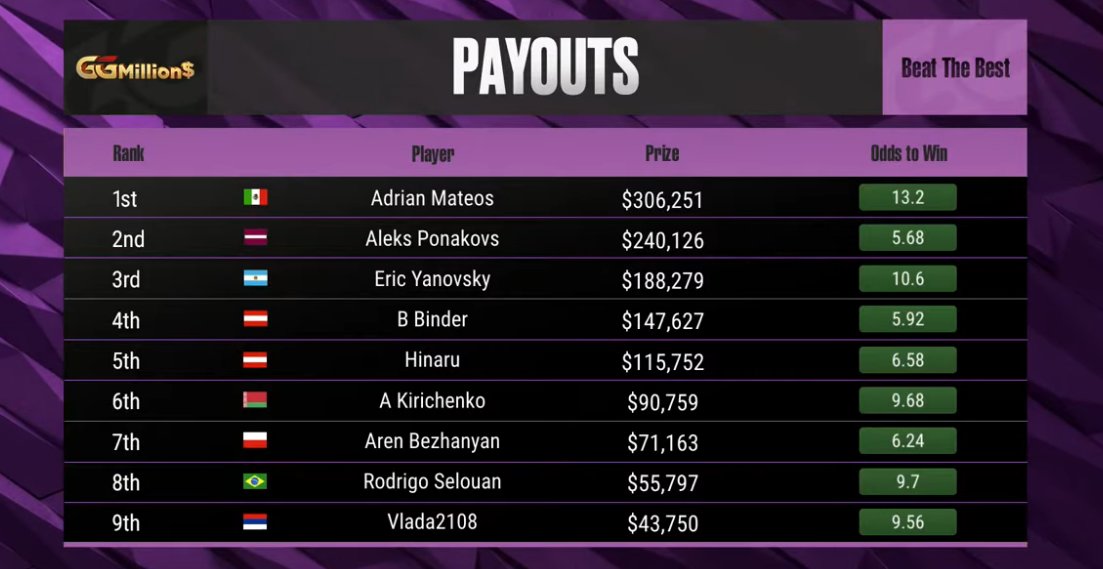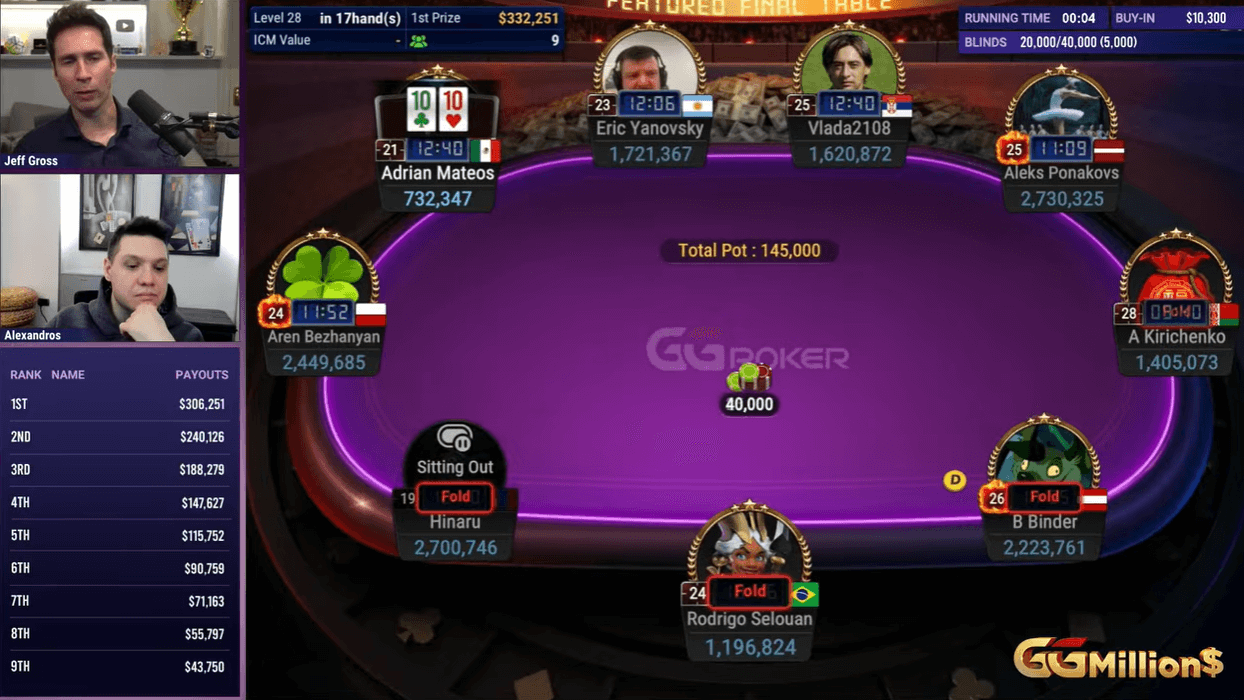From Fairy Tale to Harsh Awakening
The final table of the popular $10,300 GGMillion$ tournament on November 11 brought another intriguing moment. The Mongolian player “Hinaru” entered as the chip leader with 68bb, an ideal story for many fans — an unknown player from an exotic country with the chance to change his life with one deep run.
But from the very first hand, something was amiss. Hinaru was in sit-out mode right from the start, his time was running out, blinds ate into his stack, and speculation started brewing on the stream. Was it an internet outage? A technical problem? Or did he just oversleep? Commentator Jeff Gross hinted during the stream that the “chipleader is blinded out today due to Game Integrity.” The official response came later and was much harsher than anyone expected.
Ghosting, Account Sharing, and GGPoker’s Tough Verdict
Yesterday, GGPoker released an official statement confirming that during Day 1 of GGMillion$ on November 9, their security team identified the account Hinaru as being operated by someone other than the registered owner. An internal investigation revealed a second player was using the Hinaru account throughout the tournament — a typical case of “ghosting/account sharing” strictly forbidden by GGPoker’s rules. The operator deemed it a severe breach of their Security & Ecology Policy, emphasizing that every player must play exclusively on their own account without exceptions.
After confirming suspicions, GGPoker blocked Hinaru’s account before the final table began and permanently banned both the account owner and the player identified as ghosting. Additionally, they extended the ban to all affiliated platforms. Hinaru’s stack was passively blinded out until it finally dropped out in 5th place. The standard $115,752 prize, however, wasn’t credited to him; according to the reconciliation policy, this amount will be redistributed among the “honest” participants of the tournament.
In conclusion, GGPoker intensified its stance: account sharing and ghosting were labeled as offenses with permanent consequences. They pledged to continue investing in detection systems and to intervene “before, during, and after tournaments” to protect the integrity of the game. The Hinaru case emerged just weeks after the scandal involving the player “RealOA” and Chinese high stakes pro Tony “Ren” Lin, which we previously reported.
Mateos Triumphs Amid Scandal
While the vacant avatar of the chipleader quietly slipped down the rankings, the rest of the final table vied for big money and prestige in the GGMillion$. Spanish phenomenon Adrian Mateos started as the shortest stack with 20 blinds, once again proving why he’s among the world’s best tournament players. He patiently endured the middle phase, won a crucial all-in with aces against sixes, and turned the heads-up battle around against Aleksejs Ponakovs. He ultimately claimed his sixth GGMillion$ title, taking home $306,251.
GGMillion$ Final Table Results ($10,300 GGMillion$):

Protection, Bans, and the Future of Online Poker
GGPoker has long been building a reputation as a site prepared to tackle fraud ruthlessly. They’ve previously revealed stats about dozens of permanently banned accounts for using RTA tools or ghosting. As of 2024, GGPoker also owns the World Series of Poker brand, which means online bans could extend to the world’s most prestigious live series — Fedor Holz has confirmed that at least some online bans will impact WSOP participation.
What does this mean for the future? For players, it’s clear: ghosting, account sharing, or any form of hidden assistance is no longer a “gray area,” but a very real risk of losing your account, bankroll, and even access to the WSOP. While such cases may temporarily tarnish a brand’s reputation, the firm stance against cheating is the only way to maintain trust among players and the public in the long run.
Hinaru’s story could have been a modern-day online poker fairy tale. Instead, it serves as a textbook example of what happens when someone decides to bypass the rules. The message to everyone sitting at online tables is simple: play for yourself, play fair — or don’t play at all.
Sources – 2+2, GGPoker, PokerNews, PokerListing, X




